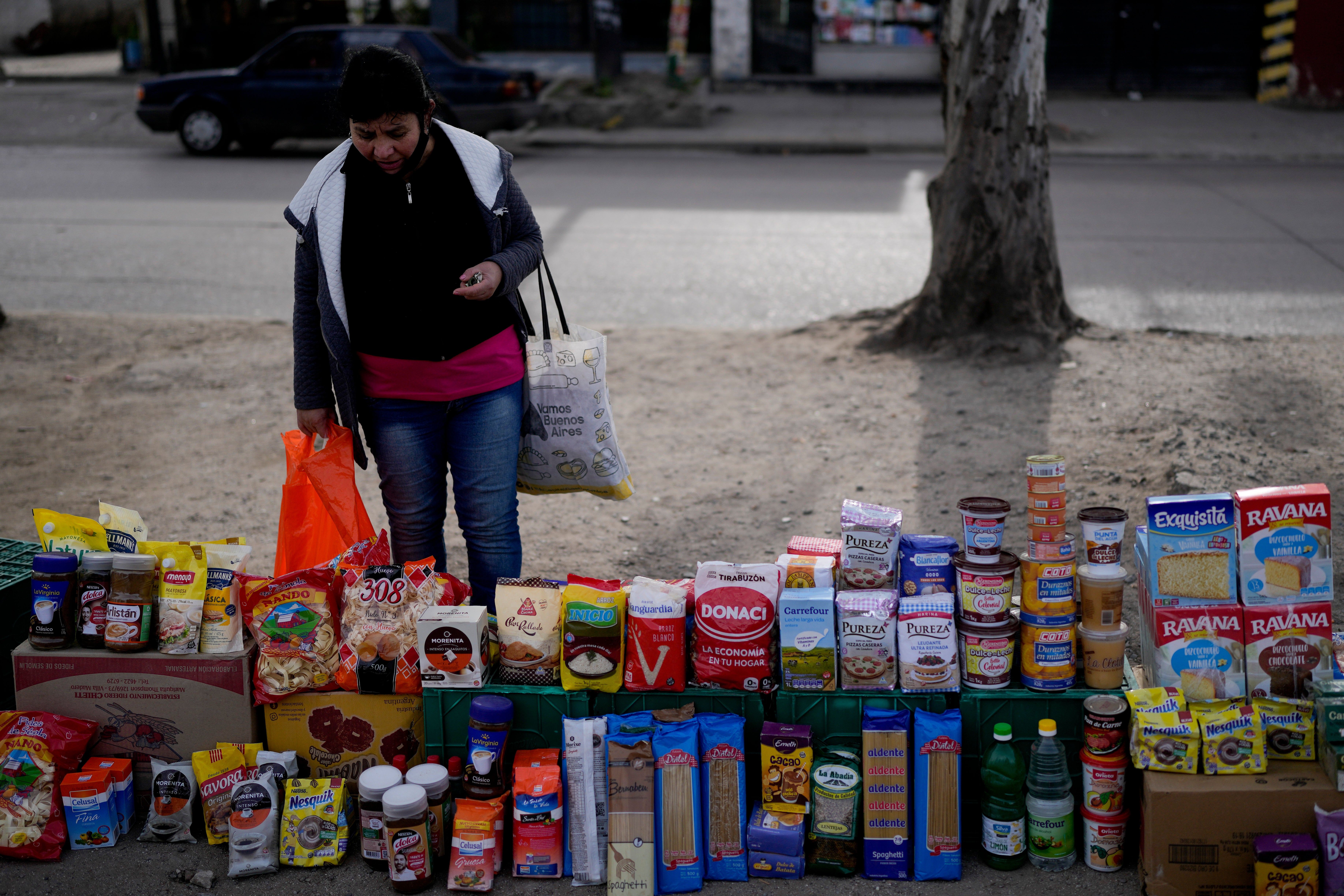I live under 70% inflation. This is how to cope with severe economic uncertainty
Here in Argentina, I’m not even sure what a pack of cookies costs any more. So if you’re worried about your own economy, let me give you some helpful tips

On Saturday, I went to the supermarket near my flat in Buenos Aires with only cash in my pocket. As I ticked the items off my shopping list, I was overcome with an episode of gluttony and tossed a second pack of cookies into the basket. I even went a bit crazy and grabbed a chocolate bar. When I started counting out wads of notes at the till, I realized with horror that I didn’t have enough for it all. Wilting under the cashier’s stare, I returned a pack of cookies.
Losing track of what things cost made me feel profligate, out of touch, like one of those upper-class politicians who can’t tell you the price of milk. But here in Argentina, inflation is running at around 70 percent, forecast to reach 90 percent before 2022 is out, and the truth is that nobody really knows what things are supposed to cost any more.
Growing up in the UK, inflation was an obscure economic term to me. I learned that it was the phenomenon by which prices gradually rise over time, but it was never a palpable pressure on my pocket. Now, the war in Ukraine and the end of lockdowns are changing that on both sides of the pond.
It started with ominous headlines about Russian oil, followed by frank outrage and disbelief at gas stations across the US. These prices are obscene. How can this be allowed? Then, it was everywhere: by June, the US Consumer Price Index had risen by 9.1 percent year on year. On Monday, Brits were horrified to learn that inflation in the UK is forecast to reach 18.6 percent by January, also driven largely by energy prices.
So, as inflation makes a comeback, Argentines are leaning back in their armchairs and sipping yerba mate with the air of a wizened grandparent smoking a pipe: Oh, we can tell you a thing or two about inflation.
Argentina has a long and unhappy relationship with money losing its value. In the 1980s, the country used an ill-fated coinage called the Austral, which was abandoned after a hyperinflationary spike saw it hit 10,000 Australes per US dollar in 1991. During the nineties, the freshly-minted peso was pegged to the dollar, but that ended in 2002 amid an economic crash of cataclysmic proportions. Soon, inflation was back.
Two-peso bills, worth two dollars in the 1990s, were withdrawn from circulation in 2018 because their value had been reduced to mere cents. Five-peso bills followed suit in 2020. Right now, the largest bill in circulation is worth 1,000 pesos ($7.09 at the official and $3.46 at parallel market exchange rates), meaning large transactions can involve literal sacks of cash.
As the global north is currently learning, inflation makes it harder and harder to reach the end of the month. And as purchasing power is eroded, everyday expenses expand to consume every cent: every power bill feels like an affront, each bus fare is extortion, and at the end of it all, there’s less money for food. The hardest hit are the poor, especially women and other vulnerable groups.
Argentina’s minimum wage has long since lost any relation to a dignified living wage — it’s currently about 48,000 pesos per month, but a family of four needs 230,000 pesos to cover their basic needs in Buenos Aires, and the gulf between those figures will only grow. So how do Argentines manage?
Faced with an assault on pay on this scale, unions are vital: around 40 percent of salaried workers are members of unions in Argentina, compared with just 10.3 percent in the US. They participate in regular negotiations to push for pay that keeps up with inflation, and it usually comes in the form of periodic installments throughout the year. Now is a good time for workers to unionize globally.
Another lesson from a world of 70 percent inflation: It’s really important to check the small print of all kinds of services and contracts, especially rent. In 2020, Argentina passed a law saying landlords had to offer contracts of at least three years, with increases indexed to consumer prices and salaries. While it’s true that many landlords took their properties off the market entirely or just charged more to start with, renters’ groups have celebrated the move and are largely happy with the result.
Those who can still scrape together some savings will find that any money left in a bank account quickly loses its value. Argentines have traditionally resorted to buying US dollars and stashing them under the proverbial mattress, but are increasingly looking at alternatives such as cryptocurrency. Such investments can be risky, but it’s worth exploring what savings accounts are on offer: savers stand to lose a lot more with inflation at 9 percent than at 3 percent.
While we have developed coping strategies, the sense of slow economic asphyxiation never really goes away: 60 percent of Argentines feel that inflation is their society’s main worry, according to a recent survey.
The scenario is brighter in the US, of course. The Consumer Price Index dropped from 9.1 percent to 8.5 percent in July, sparking hope that this wave of inflation could be receding. It will be a few months before we know for sure.
Either way, encroaching inflation teaches us why it’s so important to unionize, know our rights, and show solidarity. We all deserve that second pack of cookies.

Join our commenting forum
Join thought-provoking conversations, follow other Independent readers and see their replies